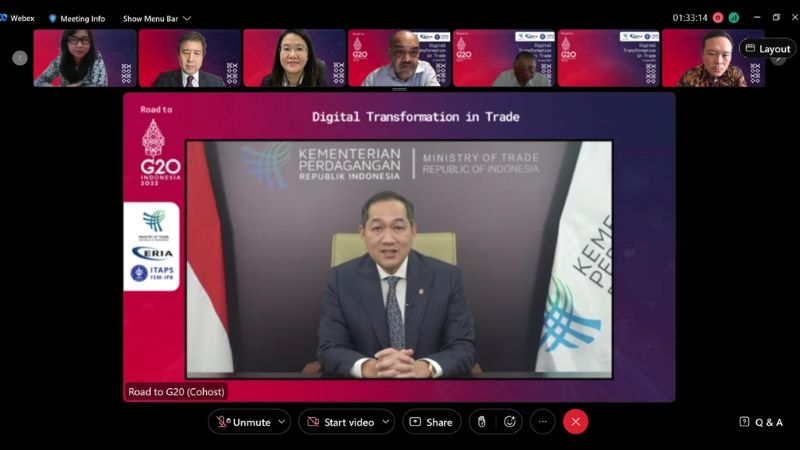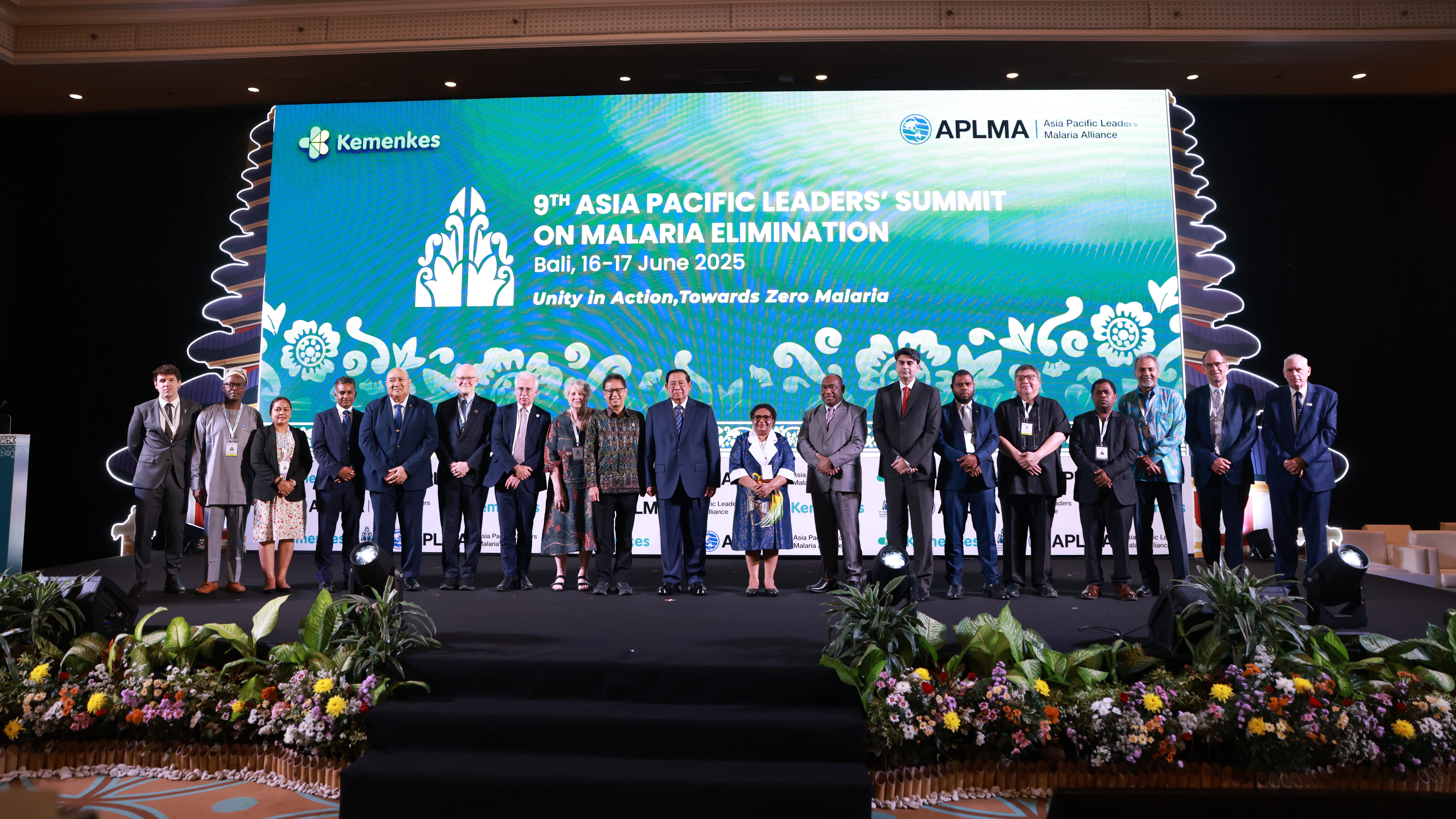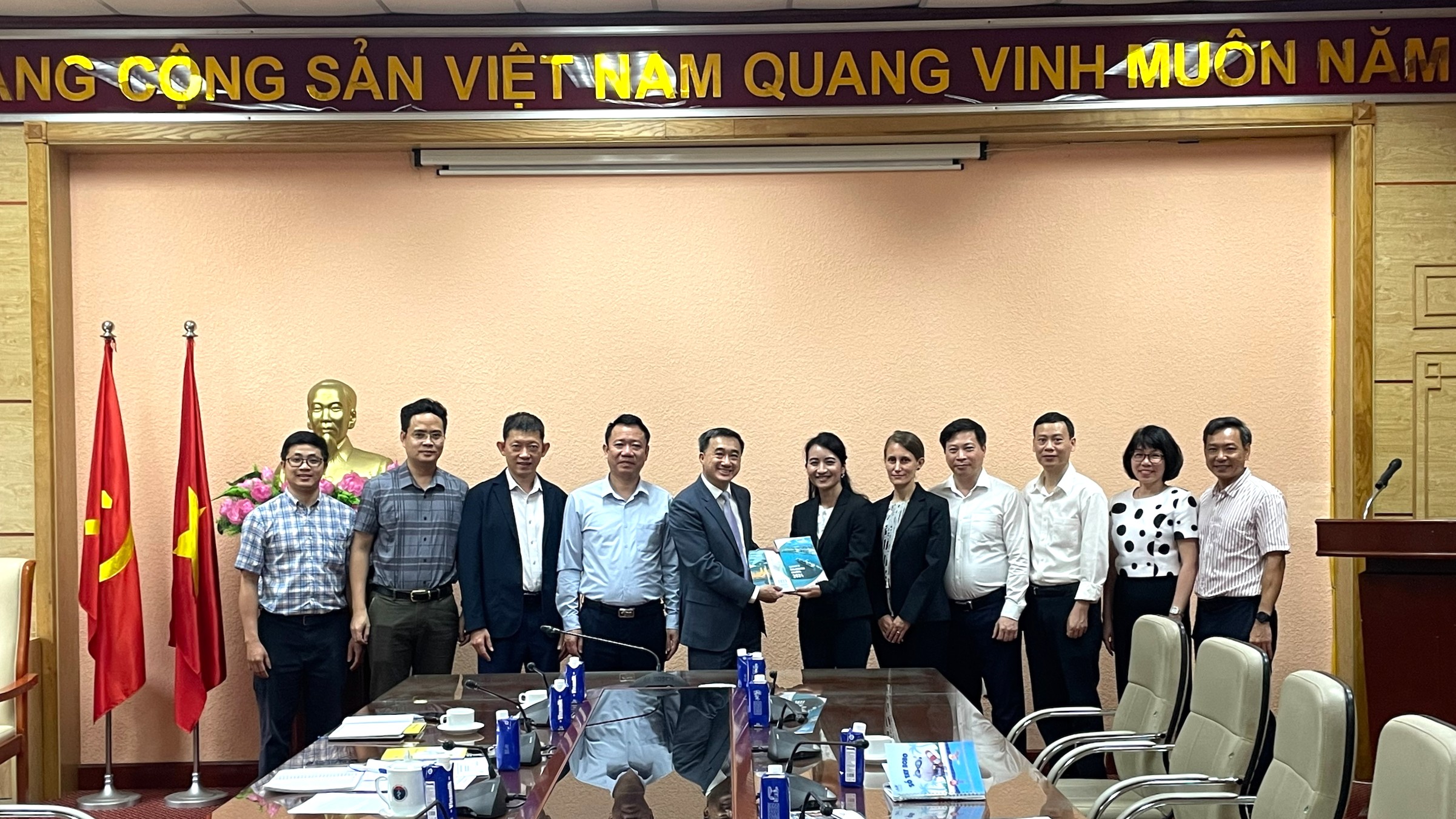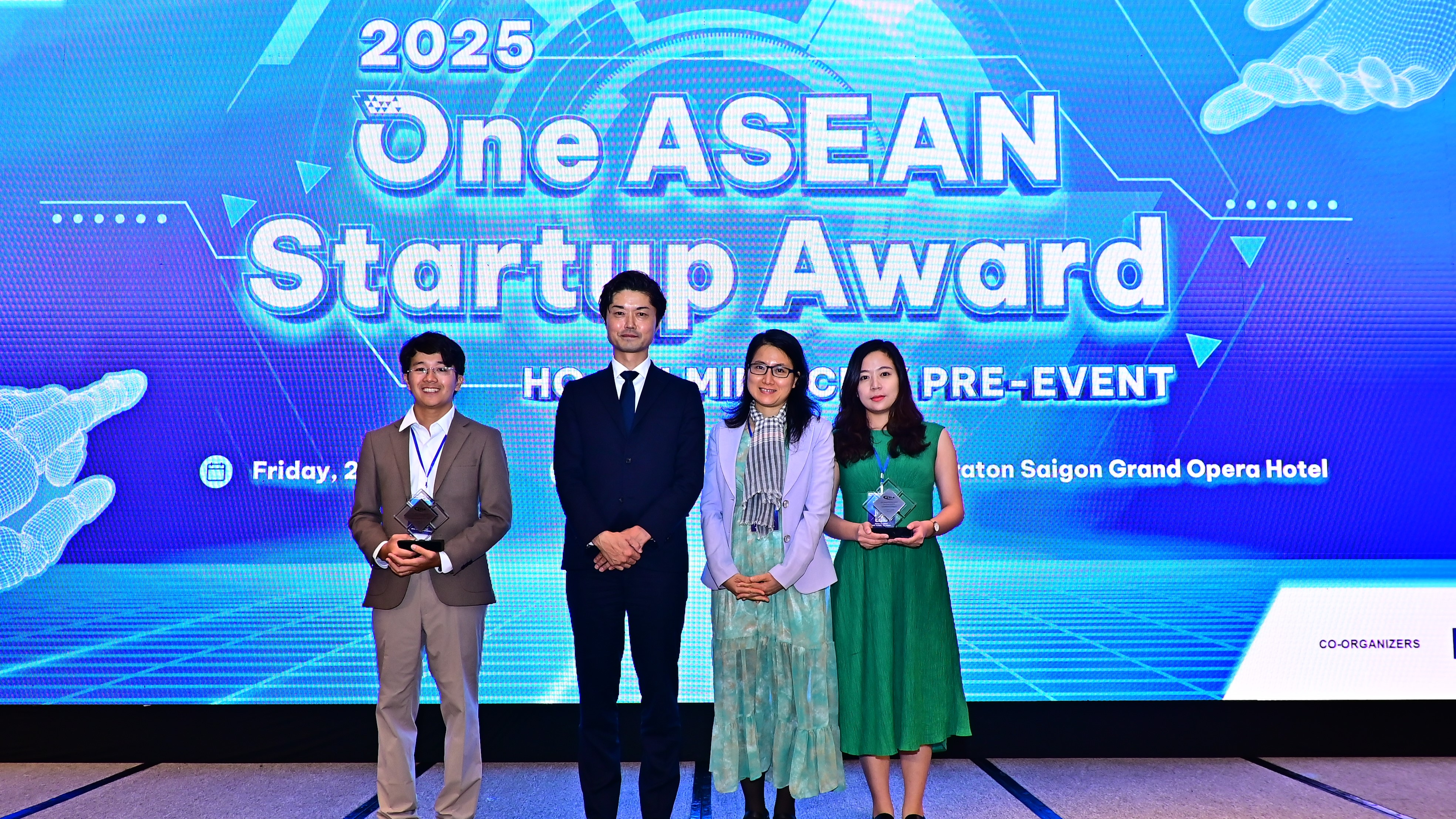Ensuring Digital Transformation Development for All
Date:
8 June 2022Category:
-Topics:
-Share Article:
Print Article:
Solo, 8 June 2022: Digital transformation, as commonly defined, is the cultural, organisational, and operational change of an organisation, industry, or ecosystem through a smart integration of digital technologies, processes, and competencies across all levels and functions in a staged and strategic way. Particularly in trade, it is playing a key role in changing modern human life and leading changes in what and how people trade. But whilst digital transformation improves productivity and trade, it also raises inequality through displacement effects and impacts on developing countries through premature deindustrialisation and disappearance of manual and routine.
Such observations were shared by Dr Lili Yan Ing, lead advisor on Southeast Asia of the Economic Research Institute for ASEAN and East Asia (ERIA), in a webinar titled Digital Transformation in Trade held on 8 June 2022. The webinar was one of the side events of the Road to Group of Twenty (G20) and conducted by the Ministry of Trade of Indonesia with ERIA and the International Trade Analysis and Policy Studies.
Citing privacy, cyber security, competition, and digital divide issues as the key challenges in digital transformation and digital trade faced by countries, particularly the G20 countries, Dr Ing suggested to the G20 four main points to achieve digital transformation development for all. First, it is important for the G20 to implement what has been committed in digital transformation and digital trade, including the frameworks. Second, G20 needs to commit to improve the quality of digital enablers, from physical to human capital. Third, G20 should promote efforts to improve the preparedness for digital adoption to reduce digital divides between and within countries. Finally, she said, it is important to have privacy and competition laws be implemented worldwide. In the question and answer session, Dr Ing cited the importance for governments to provide estimations and an outlook for the economy and communicate them well to small and medium-sized enterprises. The economic outlook and credible forecast, she said, could help them anticipate ongoing development issues as well as upcoming economic disturbances.
Other speakers in the webinar were Albert Park, chief economist of the Asian Development Bank; Haroon Bhorat, professor of economics and director of the Development Policy Research Unit of the University of Cape Town; Torbjörn Fredriksson, head of the E-commerce and Digital Economy Branch of the United Nations Conference on Trade and Development; Leonard Theosabrata, director of the Ministry of Cooperatives and Small and Medium-sized Enterprises of Indonesia; Zahra Murad, head of UKM Center FEB UI; Pamitra Wineka, chief executive officer (CEO) of TaniHub; and Edward Tirtanata, CEO of Kopi Kenangan.








